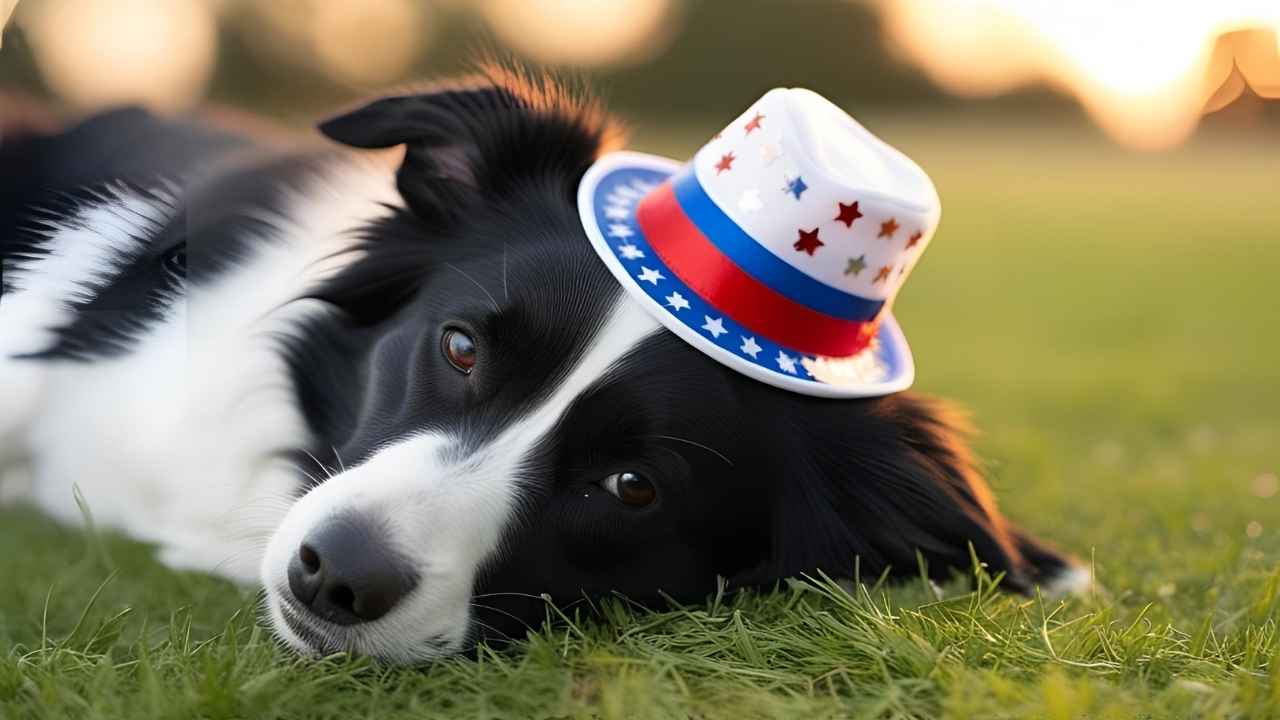Every year, July 5 becomes the busiest day of the year for animal shelters across the country. While people enjoy the 4th of July holiday with BBQs, family get-togethers, and fireworks displays, pets often suffer quietly. The loud sounds, bright lights, and late-night activities cause many animals to panic and run away from home.
According to many animal shelters, there is a big increase in the number of lost pets after Independence Day. Some shelters see double or even triple the usual number of incoming animals. In a 2023 interview with an ABC-affiliate WPDE, Jess Wnuk, Executive Director of the Grand Strand Humane Society in Myrtle Beach, shared that July 5th brings an “onslaught of intakes” that shelters struggle to handle.
In this blog, we will explain why July 5 is so hard on dogs and shelters. We will also share simple preventative measures that can help you keep your dog safe during the July 4th celebration.
Why the Day After the 4th of July Is Hard on Dogs and Shelters
Fireworks and Noise Anxiety
The biggest reason dogs run away is because they get spooked with fireworks. Dogs have very sensitive hearing. Loud noises like a late-night firecracker marathon can trigger deep fear and panic.
Many dogs react by trying to escape the noise. Some run away, others hide under furniture, and some may become destructive by chewing or scratching doors and windows. These reactions are not because the dogs are bad but because they are scared and confused. During the celebration, it is easy for a pet to suffer for hours without their owners even noticing.
Dogs Escaping from Homes and Yards
When frightened, dogs may act out of pure panic. Some are seen digging under chain link fences, others jump fences, or even jostle a screen loose and jump through open windows. Some indoor pets, like indoor-outdoor cats, also go missing during this time.
If a dog escaped the yard and does not have proper identification like identification tags or updated microchip information, it becomes very hard for rescuers to get them back to their family. Without current contact information, even a found pet may stay at the shelter for days or weeks.
Overwhelmed Animal Shelters
Shelters are already overcrowded, short-staffed, and underfunded even on normal days. After July 4th, the morning of July 5 hits them hard with the onslaught of intakes. Shelters and rescues across the country spend long hours processing lost and missing animals.
This surge adds a human toll too. Staff and dog rescuers feel exhausted, seeing the heartbreaking reality of so many pets separated from their families. They do their best, but it is a race against time to care for each animal properly. Sadly, some pets arrive injured or sick, adding to the shelter’s challenges.
Risk of Injuries and Accidents
When dogs run loose because they are escaping loud noises, they face serious dangers. Many are hit by cars on busy roads, especially when trying to cross during extra traffic caused by celebrations. Some dogs get hit by oncoming traffic or worse, by intoxicated drivers who are returning from parties.
The disorientation from fleeing fireworks makes it harder for them to avoid danger. Some pets are found with devastating injuries or suffer by the roadside for hours before a Good Samaritan finds them. Others may be attacked by other animals or get into fights while trying to find shelter.
The sad heartbreaking truth is that without preventative measures, many beloved pets become a statistic every year after the Fourth of July.
How to Keep Your Dog Safe on Independence Day and Avoid a Stressful July 5
Create a Safe, Secure Space at Home
On Independence Day, one of the best preventative measures is to leave pets safely at home. Set up a cool room where your dog feels safe. Place familiar items like blankets, toys, and water bowls there. Make sure to secure doors and windows properly so that the dog cannot jostle a screen or push their way out.
You can also help by using a white noise machine or playing classical or relaxing music. Some people even suggest leaving the television on to drown out the noise of fireworks displays. This calm environment helps dogs feel protected during the loud celebrations happening outside.
Keep Dogs Indoors and Supervised
Many pets escaped the yard during the 4th of July holiday because they were left outside alone. Even dogs that are normally fine outdoors can get spooked with fireworks and jump fences or dig their way out.
Walk your dog earlier in the day, well before any fireworks begin. Keep your dog inside during the evening when fireworks are most active. Never leave a pet unsupervised in a fenced yard on this day, as they may try to escape the noise.
Update Identification and Microchips
Proper identification can make all the difference if your dog does go missing. Before the July 4th celebration, make sure your dog’s collar has up-to-date identification tags. Also, check that their microchip information has your current contact information.
This way, if your dog ends up at an animal shelter or is found by a Good Samaritan, they have a better chance of getting back to their family quickly.
Use Calming Aids if Needed
Some dogs have a very strong fear of loud noises and fireworks displays. Natural calming aids like special treats or pheromone diffusers can help reduce their stress.
If your dog has a history of extreme fear, it is a good idea to talk to your vet about anti-anxiety medication before the celebration. This extra help can prevent your pet from panicking and trying to run away.
Stay Home if Possible
Your presence during a scary event like a late-night firecracker marathon means everything to your dog. If possible, stay home during the 4th of July holiday or leave your pet with someone they are comfortable with.
Dogs feel safer when their trusted person is around. Staying home also lets you act quickly if your pet gets startled by fireworks or tries to escape.
Avoid Taking Dogs to Fireworks Shows
Even friendly and social dogs can become overwhelmed at fireworks displays. The combination of loud noises, extra traffic, and large crowds can be too much for them.
Taking your dog to a fireworks show increases the risk that they will break free, strangle themselves if tied up, or suffer devastating injuries. It is much safer to keep them home where you can control the environment.
Plan Ahead
Good planning makes a huge difference. Talk to your neighbors about setting off fireworks responsibly. Let them know you have pets that may be sensitive to fleeing from firecrackers and escaping loud noises.
Have emergency contacts ready, such as local animal shelters, animal control officers, vets, and dog rescuers. Quick action can save your pet’s life if something goes wrong during the July 4th celebration.
You may also read: How Daylight Saving Time Affects Dogs and What You Can Do About It
5 Fun Indoor Activities for Dogs to Stay Active During Cold and Snowy Days
How Dog Genes Shape Behavior and Personality: What New Studies Reveal




